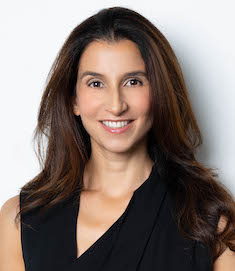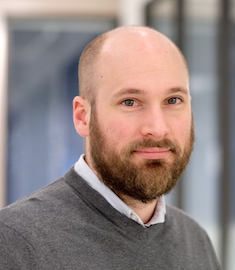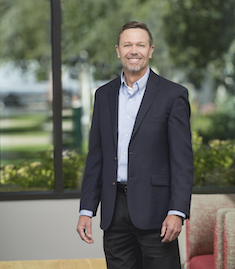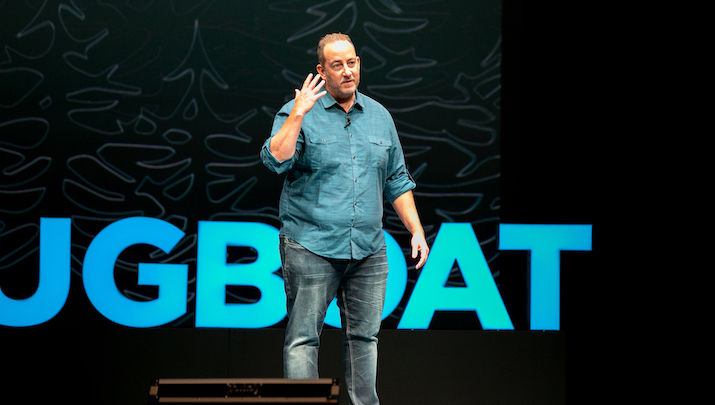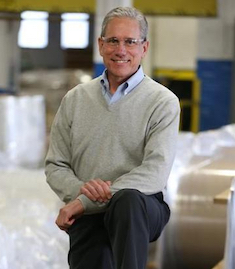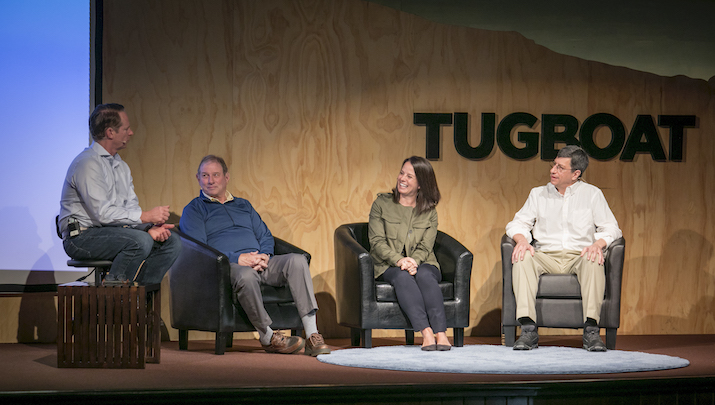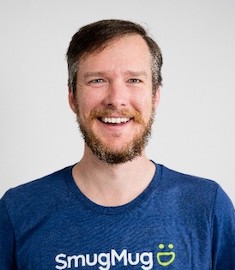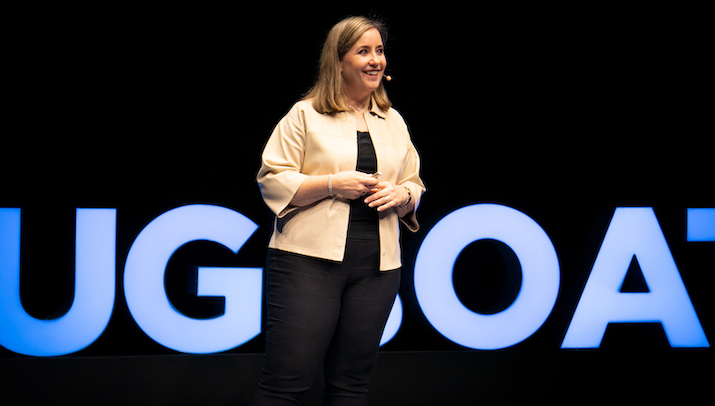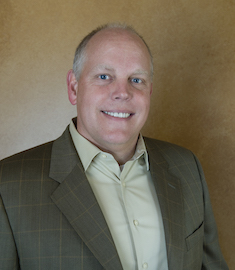From Venture to Growth Company
[A note from Tugboat Institute: Please note the postscript at the end of this article, in which the author comments on the connection of this topic to the impact of the COVID-19 pandemic.]
Kenny Rosenblatt and I started Arkadium in 2001 out of our apartment. Like many bootstrapped start-ups, we initially had no titles or processes—we just did what we had to do to make great games. But as our company grew, so did our scale of distribution and our number of employees.
Over the course of 15 years, we became great at building an inclusive, exciting culture alongside standout products. In 2016, we were recognized as Inc. Magazine’s “Best place to Work” in the U.S. By 2018, we had over 100 employees distributed between offices in New York and Russia. Our business was humming in many ways, but there was one thing that wasn’t quite right.
Kenny and I were so busy with our business strategy over the years that we didn’t put much thought into our organizational strategy. Our organizational structure just evolved over time. We knew that it wasn’t optimal. As we had grown, the “machine” driving our success started to show signs of strain. Kenny and I recognized that our organizational structure was becoming a constraint to further growth.
Specific Problems
To validate our concerns and expand our understanding of the issues, we surveyed our leadership team. And we got an “earful” of problems, the root cause of which was our organizational structure!
Authorities and accountabilities: One common theme was a lack of clear authorities and accountabilities. Key initiatives, like an update to our game platform, had no “owners.” Within multi-departmental project teams, it wasn’t understood who was in charge. This confusion sometimes led to finger pointing, despite our tightly knit culture. And it often fell to Kenny and me to resolve problems, make technical decisions, and coordinate the teams.
Misaligned priorities: Another common concern was misaligned priorities. Engineering teams independently decided the balance between R&D, new development, and maintenance of current products. Even though they were often interdependent, their priorities differed. So, when they went to look for help from others, their needs often fell to the bottom of others’ “to do” lists.
Silos: These difficulties with the team caused people to avoid teamwork, and instead work as independent “silos.” Some kinds of expertise were replicated in each silo, and there was no standardization across departments, which further impeded sharing and synergies.
Disempowerment: It wasn’t clear who had the authority to make decisions. Everyone had a say in everything, and the multiple voices often drowned out the advice of the real experts. No one was empowered with all the authorities and accountabilities to run each internal line of business.
Gaps: Some critical functions were just plain missing. For example, there was no reliable channel of communication from customers back to developers. No one was focused on understanding our customers’ industries. No one was responsible for planning (other than Kenny and me).
Lack of focus: Staff cried out for clear boundaries: “owners” of every initiative; bosses who understood their disciplines; elimination of the obstacles to teamwork; more empowerment; and viable career paths.
No Bureaucracy!
All these problems added up to a clear message: Organizational issues were getting in the way of team performance and the company’s growth. The time had come to address our organizational structure, but Kenny and I didn’t want to create a rigid bureaucracy. Our entrepreneurial culture was (and is) essential to our success.
This seemed to us to be a conundrum: How do we mature as a company and define accountabilities and authorities (clear boundaries) while maintaining our culture, engendering cross-boundary teamwork, and empowering our talented staff?
We also knew we needed a scalable organization—a structure that would not just grow as the company grew, but one that would drive that growth. We had no interest in restructuring every few years as the company grew.
We had one more concern: Our culture is collegial. We wanted to engage our leadership team in any structural change process. But how could we avoid endless debates over opinions or a political free-for-all?
Picking the Right Approach
I knew it would be a bad idea for Kenny and me to simply sketch a new organization chart, or to gather our leadership team to make something up. There had to be other companies that had dealt with these growth challenges. There had to be some sort of science of organizational design.
I began reading up on organizational theories. Most of what I found was unsatisfying. Finally, I came across a book that resonated with me: N. Dean Meyer’s Principle-Based Organizational Structure. Meyer described an organization where every group was defined as a business-within-a-business—just the sort of entrepreneurial culture we intended to cultivate. His framework of lines of business within organizations provided a map for identifying what goes where, what’s missing, and how the different functions work together.
He laid out clear design principles, modeling an engineering approach to structure that I knew my team would appreciate. These principles, Meyer said, provided a basis for a fact-based, participative process.
Beyond just the organization chart, Meyer also defined a method of forming cross-boundary teams with clear individual accountabilities and a clear chain of command within each team. I was never a fan of rigid “business process engineering.” We needed to be flexible and dynamic in combining our various skills on teams. So, his teamwork method really made sense for us.
And like the icing on a cake, he described a step-by-step design and implementation process that was well thought out and tested. It looked like a lot of work; but every step made sense and was necessary. It was almost a cookbook.
I contacted Meyer and spent a day with him, studying his approach and brainstorming how it could apply to Arkadium. The more I understood Meyer’s approach, the more convinced I became that this was just what Kenny and I were looking for.
The Change Process
Under Meyer’s guidance, we engaged our entire leadership team throughout the change process.
The first step was his “Rainbow Workshop” wherein the leadership team studied Meyer’s definitions of the lines of business that exist within organizations and how those definitions applied to us. Then we color-coded our existing organization chart to indicate which lines of business were under each leader.
The chart ended up being a little too colorful and revealing. The causes of our concerns quickly became evident. Teams were pursuing multiple, and often conflicting, lines of business. Accountabilities for many lines of business were scattered all over. And a number of lines of business were missing.
Then, Meyer led the team through a collaborative process of designing a new organization chart. In addition to the firm principles and clear language, our leaders really liked the notion that every group is an empowered entrepreneurship, chartered to serve customers elsewhere in the company or externally (or both). And the open, participative approach was really motivational, and fit well within our culture.
Of course, putting names into the resulting boxes was up to Kenny and me. But even there, Meyer encouraged team participation. Everybody had a chance to discuss their careers with us and tell us their preferences. Having some say in their destiny added to the team’s commitment and enthusiasm.
Meyer’s process doesn’t stop with a new organization chart. As he points out, if our processes of teamwork are not working really well, we’d just revert back into independent silos of generalists rather than teams of just the right specialists. And if accountabilities for results within teams aren’t clear, teamwork will just create more confusion and tension.
So, the next phase of the process focused on what Meyer calls “walk-throughs.” We looked at example after example of our projects and services. And for each, we used Meyer’s principles to decide which group was the “prime contractor” accountable for the entire result, and which other groups would serve as “sub-contractors” delivering components or supporting services to the prime.
This businesslike approach to teamwork further reinforced our entrepreneurial culture. And as a method of team formation, it allows us to be very clear about individual accountabilities and the chain of command within every team.
Meyer encouraged us to openly communicate with all our staff at each phase of the process. This, too, fit well with our collaborative, respectful culture. And it really helped with change management.
When the leadership team had practiced enough walk-throughs to really understand how the new organization chart would work, we were ready to “go live.” Meyer guided us through the myriad details necessary to prepare for the big day, including assigning all our staff and vendors to groups (again done collaboratively with the leadership team).
From the first workshop to go-live took us around 10 months. I know this sounds like a long time to be working on a restructuring. But all the planning paid off. Every leader understood his/her new job as running a small business within a business, and they all had a common understanding of how actual work would get done in the new structure.
After go-live, Meyer’s approach included a meticulous migration process which ensured that we moved all accountabilities to the right groups in the new organization, with no “dump and run” or missed commitments.
Results to Date
Since we deployed our new structure, we’re already seeing dramatic benefits: projects are taking less time to complete, employees are reporting a much greater understanding of both their responsibilities and professional growth path, and groups are much more regularly utilizing each other’s strengths
Bottom Line
This restructuring was a big investment for us—mostly consisting of the amount of leadership time we put into the process. But it was truly transformational. Before, everybody had an entrepreneurial mindset, as is appropriate in a venture like ours. Now, everybody really is an entrepreneur running their own small business within our business.
Now, teamwork across structural and geographic boundaries is working great. And Kenny and I rarely have to step in to resolve issues. Also, the design is completely scalable as we continue to grow and diversify. I don’t expect we’ll need another restructuring for a very long time.
For all these reasons, Kenny and I are confident we now have an organization that will drive growth for decades to come.
By the way, I think that Kenny and I have grown as leaders as a result of this process. We’ve always been very conscious of our culture. But now we understand organizational dynamics, and we see our role as creating a great company where everybody (not just us) drives our strategies, our operational excellence, and our growth.
Jessica Rovello is CEO and Co-Founder of Arkadium.
Postscript 09.29.2020
When I hear that a company is “re-orging,” I tend to roll my eyes. So, it was with deep skepticism that we entered into our own company re-organization two years ago. Reflecting back post-COVID, I‘m even more grateful that we took the time and attention to thoughtfully contemplate our organizational structure when we did. Having clear roles, accountability, and alignment company-wide was not only a lifesaver for us as we navigated working from home, but it has proven to be a catalyst for our business. Our teams are working smarter and more efficiently than they ever have before, and we have our restructuring to thank for a lot of that success.
Why My Software Company No Longer Accepts Resumés
My path to becoming owner and CEO of 8th Light, an Evergreen® software development business, did not follow what might be viewed as a traditional trajectory. I didn’t go straight to college to get a degree in computer science or math or engineering. I didn’t actually graduate from a mainstream high school but instead earned my GED and first attended a vocational school.
I always loved to learn, but the standard academic track was never the right place for me. When I was counseled to attend vocational school, because my grades wouldn’t get me into a four-year college, my interest in computers led me to learn programming. I got a lot of joy out of solving the really hard problems it presented. My intellectual curiosity was piqued, and I fell in love with the craft, ultimately earning enough credits to apply to a four-year degree program. That experience revealed to me a path to professional success that was fueled by passion and practical application.
In that same period, my dad introduced me to a local computer programming company in suburban Chicago, and I got a part-time job that evolved to become a five-year apprenticeship. That opportunity provided me access to really smart people, thought leaders and experts in the field, and an individual mentor. I was ultimately offered a full-time position as a consultant with that company at a fairly young age.
That was the genesis of the belief, which I still hold today, that fulfilling technical careers can start in non-traditional ways. I saw firsthand that the company’s investment in me as an apprentice paid off for them when I was able to do top tier work early in my career. When I left that consulting position to launch 8th Light, my co-founder—who had been my mentor—and I decided to develop an apprenticeship program for the company that would allow us to train people to our quality standards and programming philosophy.
In the early years, most of our apprentices had computer science degrees. As the company and the program grew, we increasingly brought in people with less conventional backgrounds—people who were making a mid-life career change, parents returning to the workforce, those who may not have had conventional academic training but had the aptitude and a passion to learn the craft, or those who had excelled in other fields and exhibited potential to thrive.
Today, we have almost entirely phased out computer science degrees from our hires. We don't even accept resumés any longer, so we don't actually know if somebody has a computer science degree or not when they apply. Our hiring process requires an aptitude test and several behavioral interviews. We want to know that a person understands the commitment it takes to master a craft, is committed to learning—and, later, to mentoring—and has the personal characteristics that will make them a good consultant. That process aligns with our three core values, which are humanity, education, and ownership.
Once they have been hired, apprentices spend on average the first six months training with a variety of mentors with a range of experience and seniority throughout the company. After that, over the next year, they begin working on client projects but continue to train and learn from mentors. Throughout, they benefit from the connections and community of their cohort group, which averages around 20-25 apprentices each cycle.
For our company—which now numbers 164 employees, including 19 apprentices, in six locations in the US and London—the apprenticeship program drives a culture of curiosity and education. Learning continues throughout a team member’s career, through unstructured learning opportunities, as well as dedicated learning periods and the opportunity to apply for more extensive education and development programs. This is critical in our field because the path to mastery is one of life-long learning.
It’s rewarding to have experienced the benefits of the apprenticeship path as an apprentice myself, and now to see the positive impact from the angle of an employer. The program has created a skilled, loyal team that is inclusive and rich in diversity of thought and experience.
That said, the model is not without its challenges. There is considerable cost to the organization when senior team members take time to mentor apprentices. In the six months that an apprentice is focused on training, they are not engaged in any billable work, so the up-front investment is significant. In addition, the diversity of the team’s background and experiences can create conflict, and we were forced to address issues of inclusivity earlier in our growth than many companies. But for us, both the cost of the program and the work to support inclusivity have allowed us to develop a team with a very high level of expertise and to foster a culture that is marked by deep connections, both of which serve our company and our clients.
I know that our apprenticeship program will continue to evolve and adapt—it’s an ongoing experiment. As we learn and continue to grow from the talent and energy the program creates for our company, I hope to be able to share what we’ve learned with other businesses that can similarly benefit from the apprenticeship model. As the cost of higher education continues to rise, there is a significant opportunity for companies to provide training and grow talent in non-traditional ways. I’ve certainly seen the value of this approach, and I’m excited to see where it will continue to lead us.
Paul Pagel is CEO of 8th Light.
Design for Sustainability Requires a Broader Scope
[A note from Tugboat Institute: Please note the author’s postscript at the end of this article, in which he comments on the connection of this topic to the impact of the COVID-19 pandemic.]
We are POWER Engineers, an Evergreen® company, committed to continuous employee-ownership. We are also a global engineering and consulting firm serving the energy, facilities, federal, and environmental markets.
POWER is involved in projects that span both renewables and fossil fuels, as well as the upstream and downstream parts of the energy supply chain that these projects create. That experience has provided us a broad and deep understanding of sustainability, offering what I think is a unique perspective on the many angles of this issue.
In our industry, we see a lot of misinformation propagated about sustainability from all sides. Against this backdrop, our approach as engineers and environmental scientists is to design and integrate sustainability into each project. Because the reality is that every project—even those ostensibly creating “clean energy”—has an impact on the environment.
For instance, while wind turbines symbolize sustainable energy for many, if you review the entire life cycle of that project—taking into account the upstream materials extraction, construction, manufacturing, operation, maintenance, and decommissioning and dismantling—the impact looks different as all of these activities have a certain carbon footprint.
The scope of our work allows us to see this entire arc, and, as a result, we have opportunities to integrate sustainability at every stage of every project. Of course, as consulting engineers, this is what we are hired to do. We innovate and create solutions for our clients within constraints that might be technical, land use-related, economic, regulatory, or some combination of all of the above. Innovation is part of our DNA.
That core drive, fueled by our commitment to sustainability, led us to partner with the Institute for Sustainable Infrastructure (ISI) and the Harvard University Graduate School of Design to develop a tool for our industry to evaluate sustainability of infrastructure projects. Using ISI’s EnvisionTM rating system, we created “SustainEval,” a web-based calculator that allows a designer, planner, or owner to evaluate how a transmission line facility rates for environmental, social, and economic impacts and compares that rating to other similar projects.
As engineers and environmental scientists, we understand our work can have a profound impact on the world in terms of sustainability. But we are also very aware of our obligation to walk the talk within our own company. That awareness led to us to evolve sustainability efforts within operations at POWER Engineers.
In recent years, we've installed a solar power system on our headquarters that includes instrumentation that evaluates our reduction in electricity and thereby our reduction in greenhouse gas emissions. We've also purchased electric vehicles for employee use in commuting between our offices, and we engage in recycling and other waste reduction efforts. While these steps may seem minor when compared with our large-scale, global projects, we feel these efforts are critical for signaling the sustainable behavior we support.
As an Evergreen business, the concept of sustainability also has a deeper meaning beyond the context of the environmental impact of our work. We’re an employee-owned company. We feel lucky to have inherited this endowment from the prior generation, and we feel that we have a duty and an obligation to do that for the next generation too.
So, sustainability means we’re doing our very best to help meet the world’s present needs without compromising the ability of future generations to do the same. But it also means we’re continuing to pay our success forward so that the next generation of owners has equal or even more opportunities than we have today.
Bret Moffett is CEO of POWER Engineers.
Photo Credit: Makis Siderakis, Mountain Air
Postscript 08.25.2020
The energy industry has shifted, but not drastically contracted, in the wake of the COVID-19 pandemic. From a sustainability standpoint, we’re likely to see more interest in distributed energy resources—small, often renewable, sources of power that are located near the communities that need energy, rather than large centralized power plants. These resources can be placed in residential areas, where energy use has risen while energy use in commercial areas declined. We remain flexible and innovative, ready to serve our clients’ needs even as those needs shift.
POWER was also well-positioned to adapt to remote work. As a employee-owned company, we were able to act quickly and eliminated all nonessential business travel in mid-March and moved entirely to work from home a week later. This move has cut down our emissions from travel and commuting in the short term. In the long-term, our exploration of remote collaboration tools could allow us to continue active client support while reducing our travel-related emissions permanently.
What Parents Need to Know About Remote Learning
Jeff Patterson, CEO of Gaggle, has unique insight into the experience of students’ online lives in today’s remote learning landscape. Gaggle serves school districts around the country through the development and management of a digital student safety net and trained safety experts, utilized to monitor activity on devices and apps to alert schools to the possibility of students harming themselves or others.
In this talk from Tugboat Institute Summit 2020, Jeff encourages parents and employers of parents to be particularly attentive to the mental health and well-being of children in the academic year ahead. As students face the loss of school and all-important social connections, he offers valuable perspective to help families and Evergreen® leaders navigate this period and understand what’s at stake in this unprecedented time.
Grace and Grit at Tugboat Institute Summit 2020
In many ways, Tugboat Institute Summit looked different this year. In the wake of the pandemic, the annual gathering of Evergreen® CEOs, held for the last eight years as an in-person experience over two-and-a-half days in Sun Valley, Idaho, transitioned to a virtual experience.
In a year marked by the loss of so many beloved traditions and milestones, it was a hard decision to make. Our community of leaders treasures the days spent together each year in the mountains. For many, the opportunity to hear the experiences, best practices, and personal stories of peers and thought leaders equally committed to growing purpose-driven companies for the long-term—and to process the content in a setting so conducive to reflection—provides a welcome annual reset and inspirational fuel for the year ahead.
Understanding the unique value of the experience, we knew we needed to shake off our disappointment and start creating something incredible for the Evergreen leaders we are proud to serve. With that commitment as our guide, we set about developing a two-and-a-half-day virtual experience that would offer the same spirit of sharing, learning, and authentic connection members have come to expect. Members, exhibiting characteristic grace and gratitude, adapted with us and rallied behind the team as we got to work.
The result of those efforts was indeed different than our traditional Tugboat Institute Summit, but in essential ways, it was beautifully the same: members gathered and spent time with their peers; they laughed; they felt deeply; they made new connections; they gained innovative insights and practical takeaways. They were inspired.
The first opportunity to connect came through a gathering of leaders of large, multi-generational companies, led by Dr. Tom Epperson, President of InnerWill; Tugboat Forum leader training, led by Tugboat Chairman Jeff Snipes; and, First-Year Orientation. The spirit of generosity shown by the leaders of these sessions and the clear desire to learn and grow among participants set the tone for engagement in the virtual experience.
Following those focused pre-meetings, the livestream event was launched with a welcome from the stage of The Argyros Performing Arts Center, followed by Zoom breakout sessions for all attendees to conclude the first day’s programming.
The next morning, the agenda of live and pre-recorded talks included Dr. Gary Kunkle, who shared insight into academic research around sustained-growth companies through an interview with Tugboat Institute Founder Dave Whorton, and Dr. Tom Epperson, who spoke to the transformative impact of values-based leadership.
During a period when the food and beverage business has been hard hit, talks by Brian Canlis, President/Owner of Canlis restaurant, and Alissa Leinonen, CEO and Founder of catering company Gourmondo Co., reflected the powerful role of the Evergreen 7Ps™ principles of Perseverance and Pragmatic Innovation in this period. Perseverance was also a guiding light in the talk that Vicki LaRose, President of Civil Design Inc., shared. Her story of learning to trust her own voice and her leadership ability through a life and career marked by personal and professional challenge was inspiring and heartfelt.
Another clear theme of the day was the commitment of Evergreen leaders to be of service—to their employees, their customers, their suppliers, and their communities. Talks by Bill Roark, CEO and Founder of Torch Technologies, and Chris Mittelstaedt, CEO and Co-Founder of The FruitGuys, offered insight into how these leaders integrate their orientation toward service into everything they do.
Sharing a commitment to Evergreen 7Ps principles was the goal for Dave Thrasher, President of Supportworks, who spoke to his decision to guide his company to become Certified Evergreen®. Dave shared a powerful video that he and his team created, describing the importance of being an Evergreen company, which he in turn gifted to other Certified Evergreen companies.
Day two began with a topic relevant to all businesses and leaders today: Power. In a live interview with Dave Whorton, Jack Hand, Chairman of POWER Engineers, shared wisdom from his 19 years as CEO of the global consulting engineering firm. The conversation offered insight into current dynamics and long-term trends in power generation, distribution, and consumption.
Leadership emerged as a through line of several of the talks that followed that day. Allen Serfas, Co-Founder and President of Assistance Home Care, and Kevin Switick, President and CEO of Avian Inc., both spoke to formative lessons they each draw on as leaders of their Evergreen businesses. Bruce Williams, CEO of US Tool Group, shared the impact of a particularly eye-opening experience that sparked a now decades-long journey of leadership and business transformation.
Executive coach Kaley Klemp provided a valuable leadership tool through her talk, “Curiosity and 100% Responsibility,” in which she described the concept of being “above or below the line” in relationships and the three unproductive roles of the “drama triangle,” which can stifle clear communication, creativity, and problem solving. Mac Harman, CEO of Balsam Brands, encouraged his peers to recognize the role they can play as leaders of business policy and legislation through lobbying efforts. And, Jeff Patterson, CEO of Gaggle, encouraged parents and employers of parents to be particularly attentive to the mental health and well-being of children in this unsettling season as they face the loss of school and all-important social connections. He offered the idea that parents might view this academic year as a “gap year,” modifying expectations for academic achievement and prioritizing safe opportunities for socialization and wellness.
Very personal stories of key learnings in leadership emerged through talks by Carl Erickson, Founder and Chairman of Atomic Object, and Ingrid Carney, Founder and CEO of Ingrid & Isabel. Carl described the benefit of a sabbatical experience on self and business, encouraging other leaders to embrace the opportunity. Ingrid reflected on the idea of bravery and the way she has come to redefine that quality as she has grown as a leader and a parent.
It was fitting to end Tugboat Institute Summit 2020 with the theme of bravery. Ingrid is right: Evergreen leaders exhibit bravery every day as they serve their families, their companies, and their communities. In a year that continues to offer up surprises and challenges, we’re inspired by the abiding character, grace, and grit that this tribe exhibits. We look forward to welcoming members back to the mountains, and we can’t wait to continue to learn and grow together.
Diana Price is Content Director at Tugboat Institute.
Building a 290-Year-Old Global Evergreen Family Business
[A note from Tugboat Institute: Please note the author’s postscript at the end of this article, in which he comments on the connection of this topic to the impact of the COVID-19 pandemic.]
When I joined our Evergreen® family business, Hollingsworth & Vose Co. (H&V) in the mid-nineteen seventies, we operated four plants in the U.S. Northeast. The company’s roots go back to the 1728 founding of a paper company in the colonial Province of Massachusetts Bay. The enterprise has continually evolved over seven generations. Today, we are a leading global producer of advanced materials for filtration and battery applications, operating thirteen plants in six countries.
Our successes and mistakes with global expansion have taught us a lot about what it takes to build successful manufacturing operations in other countries. This began with our first foreign plant in Apizaco, Mexico in 1981 and has continued throughout our expansion to the U.K., Germany, China, and, most recently, India. We found that our family company culture, values and long term, Evergreen perspective have helped us on this journey.
When our Suzhou, China plant was recently recognized as a “Best Place to Work” in the Greater Suzhou area (of about 10 million people), it provided the opportunity to reflect on the 15-year journey of building that team and the significant steps and consistent effort that have led to our long-term success in China.
We had been exporting to Asia for years and had numerous customer relationships, but we realized that we needed local operations and a strong local team to have long-term success. We explored acquiring or partnering with a Chinese business, but we were unsuccessful in finding the right opportunity and fit. By the early 2000s laws had changed in China to allow foreign companies to have wholly owned operations. So, we decided to build a greenfield factory in China with the objective of firmly establishing our company culture from the beginning.
Once we had made the decision to open in China, an early, important step was to tap one of our long-term, U.S.-based operating leaders to spearhead early recruitment and development efforts. A veteran employee with a deep understanding of our culture, Ken Fausnacht (now our VP of Global Operations) made over 50 trips to China in those early years, identifying and hiring key leaders who seemed most aligned to the long-term perspective and family culture that define our company. Ken also personifies the qualities of commitment and a genuine concern for people that is at the heart of the family oriented culture we wanted to establish and continually strengthen.
Our prior experience in China had shown us that our family-oriented culture provided a powerful advantage in recruiting value-aligned team members. The concept of family and heritage is really powerful in China. We knew that if we could tap into that by sharing our history and values as 270+ year-old, seventh-generation enterprise, committed to building close relationships founded on trust and open communication for the long-term, we could recruit a core team that would set the foundation of our culture.
It was critical to recruit employees committed for the long-term because the markets that we serve require deep, specialized knowledge and experience; if you don't have people who are experts in the technology and application, it's really hard to win the confidence of the end users. Sharing our history, our family ownership structure, and the culture that reflects this heritage was very helpful in attracting quality people who met our exacting criteria from the beginning.
A critical early hire, John Zhang, came as plant manager. He naturally understood and was aligned with the culture we wanted to build. He undertook hiring the original operations team and starting up the plant, which he continued to run as we added multiple production lines over the years. (He has since moved up to be the regional Managing Director for our overall Asia-Pacific business.) We were also really fortunate recruit a phenomenal HR director, Kathy Zhang, who still serves in the role today. John and Kathy understood the culture of H&V and worked to build the local version of it that would feel right in China and that they and their team would feel was their own.
Establishing that core Chinese team was important, as was our decision to bring in people from our U.S. operations, as well as some from Europe, many of whom committed to moving to China for several years to help launch the plant and establish our culture.
Having built that team, we worked to create strong lateral connections between China-based employees and their counterparts in our other global facilities. Phone and video conferencing, as well as a heavy travel and visitation schedule, consistently connected team members. Our finance people in the U.S., for instance, developed personal relationships with the finance people in Asia, and our technology people had similar lateral relationships. Over time, some Chinese employees applied for jobs in our U.S. plants, as well, creating additional ties. Those connections were, and remain, important to our success.
The work of creating a long-term, value-aligned team in a foreign country takes perseverance and patience. It does not happen overnight. For us, across all of our geographies, it remains a work in progress. But in the case of our Chinese plant, we have seen the result of that effort in the culture that has become imbedded and in our ability to continue to grow that value-aligned team.
I’m able to see our progress during regular trips to Suzhou, but our annual Chinese New Year celebration really highlights the culture the local team has created. The evening includes skits and costumes, and everyone—including me—participates. The first year we held the event, we gathered as one table of eight. Last year, the team filled almost 40 tables, and we had employees celebrating five-, ten-, and 15-year anniversaries. Last year, as I stood with John and Kathy, who were there from the early days, I found myself marveling at how far we’d come. It felt like family.
08.11.20 Postscript
Since the time of this article, the Covid pandemic has changed a lot for just about all of us. In addition to the challenges of the pandemic, H&V and our Asia Pacific Team suffered a very great loss. John Zhang, who is featured in the original article, suffered a fatal heart attack a short time ago. John was the Managing Director of H&V APAC and was one of the founders of that organization. A wonderful leader, he was instrumental in establishing a Chinese version of H&V’s family-oriented culture in China. He built a very strong team that, despite this great loss, will surely continue his good work.
For the overall company, our people have done well responding to the pandemic. Our teams have worked hard to keep our people safe while more than doubling the output of several critical products. In addition to all the normal protocols, we developed internal sources of face masks and hand sanitizer for our people, their families, and our retirees.
H&V is a major producer of the filtration materials used in N95 masks, surgical masks, medical breathing devices, test kits, HVAC, and Hepa filters. Our teams have expedited the commercialization of new mask and gown materials. We have also received government grants to help us further increase production of some of these critical products. As with most companies, this has been a very difficult time, with lots of worries and challenges, but also a time when we see many people doing their very best to help us all get through.
Valentine Hollingsworth is President and CEO of Hollingsworth & Vose.
How to Avoid Messing Up Your Kids
With the privilege of owning and operating a multi-generational family business comes tremendous responsibility to educate children in the family about the business and wealth management. This panel discussion from the Tugboat Institute Summit 2018 highlights “what not to do” and draws on the expertise of leading family office and multi-generational business experts.
Defying Conventional Wisdom 17 Years Ago Put Our Evergreen Business Ahead
[A note from Tugboat Institute: This week, we are publishing an article written before the COVID pandemic. Please note the author’s postscript at the end of this article, in which he comments on the connection of this topic to the impact of the pandemic.]
When we launched our Evergreen® business, SmugMug, an online, subscription-based photo sharing and hosting service, we had no idea our business model was innovative. We knew it was logical, that it felt like the right thing to do, and that it solved a problem for our customers. For us, those were the key factors. We only realized later that the idea was a Pragmatic Innovation that would make us the first online consumer subscription service.
Really, this innovation was born of necessity. From day one, we had an uncompromising commitment to our customers, and we didn’t see another model that would allow us to put their needs first.
When we launched SmugMug in 2002, existing photo-sharing services were ad-based: they provided storage and sharing capabilities for their customers for free, but photos were presented alongside advertising. In this scenario, the customer might be viewing his or her family photos from a recent trip to Disneyland alongside ads for any variety of products or services that didn’t necessarily shout “family-friendly.” They had no control over how their photos were positioned. And, because that “free” storage was often supported by sales of prints or other products, customers found that if they didn’t purchase prints or use other services offered by the provider, their photos could be taken down and lost forever.
In fact, one of these “free” services lost some of our family photos. As avid photographers, this felt personal. We didn’t like ads presented against our photos, and we didn’t like the idea that our irreplaceable photos that created a treasured timeline of our lives were held hostage and could be erased forever at any time.
We got to thinking about an alternative model. How could we create a sustainable business that prioritized our customers and their photos? Ultimately, we landed on the only solution that seemed it could work: We would ask customers to actually pay what it cost to put their photos online.
Today, that concept hardly seems revolutionary. But in 2002, the mantra was, “it’s all about the eyeballs,” and no one paid for any online service. The dogma of the day was that everything online should be free to attract the greatest number of users, and it would be more than a decade before that really shifted in online consumer services.
There’s no doubt that we were outliers. All but one analyst told us that our concept just wouldn’t work. But we still felt the business had potential. And we felt that the only way we’d really know if customers would value our services was to ask them pay up front. We figured that it was a pretty simple test: If they weren’t willing to pull out their credit cards, then we didn’t actually have a viable business.
But they did. Without ever having used our service or even necessarily knowing what it offered, customers entered their credit card numbers on day one and signed up for SmugMug because they wanted a better photo sharing and storage service.
From that first day and that first subscription payment, we felt a profound responsibility to our customers. Given people had myriad free options—from some of the most trusted names in photography—the immediate expectation was that if SmugMug was charging a fee, they must be offering something exceptional. We accepted this higher expectation, and we made a commitment to take care of customers and their memories with unrelenting focus.
With that self-imposed mandate, we invested heavily in customer service and very quickly learned that our dedication to our customers was a differentiator. They felt they knew us personally. They trusted us, and we honored that trust by listening to them and responding to their requests. We ensured they had unlimited storage and beautiful galleries to share; we built what is now commonly known as “enterprise-level” access controls, providing customers the ability to manage their audience and secure their privacy. We grew and innovated based on our customers’ needs.
Now, 17 years later, we continue to be laser-focused on our subscribers. As a private, Evergreen business with a long-term view, we've never paid close attention to our competitors, instead, we focus on what are our customers are asking for and how we can deliver that. Rather than being distracted by the next bright, shiny object, we are committed to delivering customer value. And, we still feel that we can best deliver that value through the subscription model that, while no longer a brave new innovation in our space, remains our strength.
In fact, when we acquired photo and video sharing service Flickr in 2018, we doubled down on our commitment to the subscription model. Flickr already had some subscription models, but they were losing a lot of money. We immediately began to work on aligning and improving their model so customers would see the value and be happy to pay for our services.
While serving our customers through our subscription service remains our core offering, we have also responded to their requests for complementary products that allow them to share their photos in other ways. We developed a line of business selling prints, photo books, and gifts, thereby providing ourselves some revenue diversification and additional value to the customers. But even with that money coming in, we view ourselves as a subscription service first because the product sales come and go based on whether we have happy, paying subscribers.
As a family-owned Evergreen business, when we reflect on the company we have built over the past 17 years, there’s no better indication of the value of our subscription service than scrolling through our own SmugMug photo galleries. Like our first customers, I started storing my photos on our platform in 2002. I have photos of my first date with my wife, of our wedding, and of the births of our kids—among many, many other memories. We keenly feel our obligation to continue to put our customers first, to keep their photos safe. As we continue to grow and build our company, it is with that intimate understanding of the the memories that we are keeping that we move ahead.
And, as a final note, I should tell you that our unconventional approach had the additional benefit of not requiring that we raise outside capital. In fact, our original and only investment was $20.
Postscript: As the global economy shifted overnight with the pandemic, our decision to orient our business with our customers is continuing to prove valuable. Advertising revenue has significantly shrunk across the industry, and partnerships and sales are hard to come by while so many companies are struggling. Our customers, however, continue to demonstrate that their photos and our platforms are important in their life. We haven't escaped impact, but it's far less than many others with different business models are struggling with.
Ben MacAskill is President and COO of SmugMug + Flickr.
Photo credit: Aaron Meyers
Is Your Daughter Ready to Lead the Family Business?
Pamela Kan is unique—a female owner-operator in a traditional manufacturing business. Pamela leads Bishop-Wisecarver, the company her father founded in Pittsburg, California.
In this presentation from Tugboat Institute Summit 2019, Pamela offers insight into her own leadership journey as CEO of an Evergreen® woman-owned manufacturing business and her commitment to introducing and nurturing other female leaders.
Going Up: How an Unlikely Elevator Startup Is Changing the World
In 2007, after many years in executive roles for a global elevator company, I felt like I had hit a plateau in the organization. When the company went through a reorganization and I landed in a role that I did not feel allowed me room to grow, I knew it was time to go. I was ready for a new challenge.
My wife Tracy and I founded Genesis Elevator in the basement of our home that year—with our three sons, Joshua, Jared, and Mason, our two dogs, and our niece all under the same roof at the time. Starting a business right before the Great Recession meant that we had to fight hard and run lean from the beginning. But, from the start, we had a powerful Purpose driving our work.
When we decided to start our own company, we committed to making it a faith-based business. We did not fully understand how that would look in the beginning, but at a basic level, we knew we wanted to build a company grounded in the same core values that defined our Christian faith.
In 2012, through a transformative mission trip to Cambodia with my son Jared, I learned first-hand the need among orphans in that country. On that trip, I met a five-year-old girl named Vichika (aka Susan). My wife and I had raised three boys, and I love kids, but the connection I felt with this little girl was extraordinary. I came home from that trip and knew I had to do something for her—and for other orphans who could not be adopted.
Cambodia’s borders, like those of several other countries, are closed to adoption by U.S. citizens because of the rampant problem of human trafficking and corruption. Traditional adoption was not a possibility. Instead, we realized, the closest consistent family connection we could offer Vichika and other children would need to be delivered in a different way. If we could provide the necessary technology to orphanages, we could facilitate “virtual adoptions,” connecting families in the U.S. with orphans to build life-long familial relationships through video connections, as well as regular in-person visits by the adoptive family. We believed that by taking this kind of qualitative approach, we could impact change for generations to come.
Today, Saving Susan Ministry, the nonprofit organization we founded to do this work facilitates virtual adoptions and also funds trade school and college for orphans, providing them a path to Purpose. The organization not only provides personal purpose for myself and my family, it fuels the growth of our Evergreen® business. We always knew we were building a faith-based business, but this ministry has become our north star, the reason Genesis Elevators exists today.
Our Purpose fuels our Paced Growth and our commitment to remaining Private, propels our Profit, guides our People First programs, and has inspired us to approach this phase of life and the life of our company with newfound commitment and energy.
Here are just some of the ways our Purpose is reflected at Genesis Elevator today:
Paced Growth
Sustainable growth will allow the company and Saving Susan Ministry to exist well beyond my wife and me, on an Evergreen time frame. Our commitment to this company has nothing to do with a desire to cash out and get a big paycheck or check items of a bucket list. It’s about growing and innovating to continue to change the lives of orphans and the families who are blessed to partner with them.
In 2019, we launched a manufacturing division, Revelation Manufacturing, to produce residential elevators. Large, global elevator companies are not interested in this market, so it’s pretty fragmented and made up of small companies. Entering this new market and expanding our footprint provides the opportunity for significant growth. Growth and increased profitability will allow us to help more at-risk children.
Private
Our industry, like so many, is being inundated by private equity. In fact, the third-largest elevator company in the world, ThyssenKrupp Elevator, is about to be acquired by a consortium of private equity firms. We get calls from these firms, as I’m sure most private companies do. However, our response is clear: “This isn’t going to work. First, we’re adhere to the Evergreen 7P™ principles and are a member of Tugboat Institute—you can go look up what that means if you are interested; second, your money can't deliver what God's delivering for us unless you’re going to commit to the ministry (our purpose).” Needless to say, the conversation is over pretty quick.
Profit
About a year after our initial trip to Cambodia and the launch of our ministry, we held a company board meeting. We were finally breaking through the lean years that followed the Great Recession, and we were looking forward to celebrating our numbers and being able to breathe a bit easier. At the meeting, one of our board members said, “Well, Jay, as a faith-based company, your priority for the first profits should be to direct them to your ministry.” That was not what I necessarily wanted to hear, but as I let the idea settle, I knew he was right.
That first year of profitability, we committed 15 percent of our profits to Saving Susan Ministry. We have raised our annual commitment by one percent each year since. Last year, 19 percent of our profit went to the ministry. Seeing the fruits of our labor dedicated in this way is powerful and drives us to continually work toward increased profitability.
People First
Our Purpose fuels the culture of family at Genesis Elevator and guides our People First practices. We're constantly evaluating our culture to better understand how we can help our team prioritize family and maintain healthy connections. We say “Family matters to everybody. It matters to us. It matters to you. It's more important than this business.”
One benefit we have implemented to help family well-being is to make mental health professionals available to any team member or their family members when they have difficult situations that they need help with, free of charge. We know that life's tough. You don't get through life without difficulties, and we want our people to know that we are there for them and that they can have a resource for confidential support when needed.
Personal Transformation
I have been in the elevator business since I graduated from college, all of my professional life. But elevators don’t get me up in the morning. I have always loved the people I have worked with, across all the roles I’ve had, which kept me in the field, but I never felt a deeply held purpose in my work other than to take care of my family.
Now, I get up in the morning to serve the people in our company and the ministry. In the end, it is our team, sustainable profit, and manageable growth that will allow us to continue to have a positive impact on at-risk kids. With 140 million orphans in the world, we won’t run out of opportunity in my lifetime. Vichika is 12 now, and our relationship with her grows every year. We also support her brother, Mesa, who is 16, as well as another young girl, Grace, who’s six. These children may not live with us physically, but be assured they are our kids—just like our three boys. They are part of the Arntzen tribe, and they have blessed our family beyond measure.
Jay Arntzen is President of Genesis Elevator Company and Revelation Manufacturing; his wife, Tracy, serves as President of Saving Susan Ministry.
